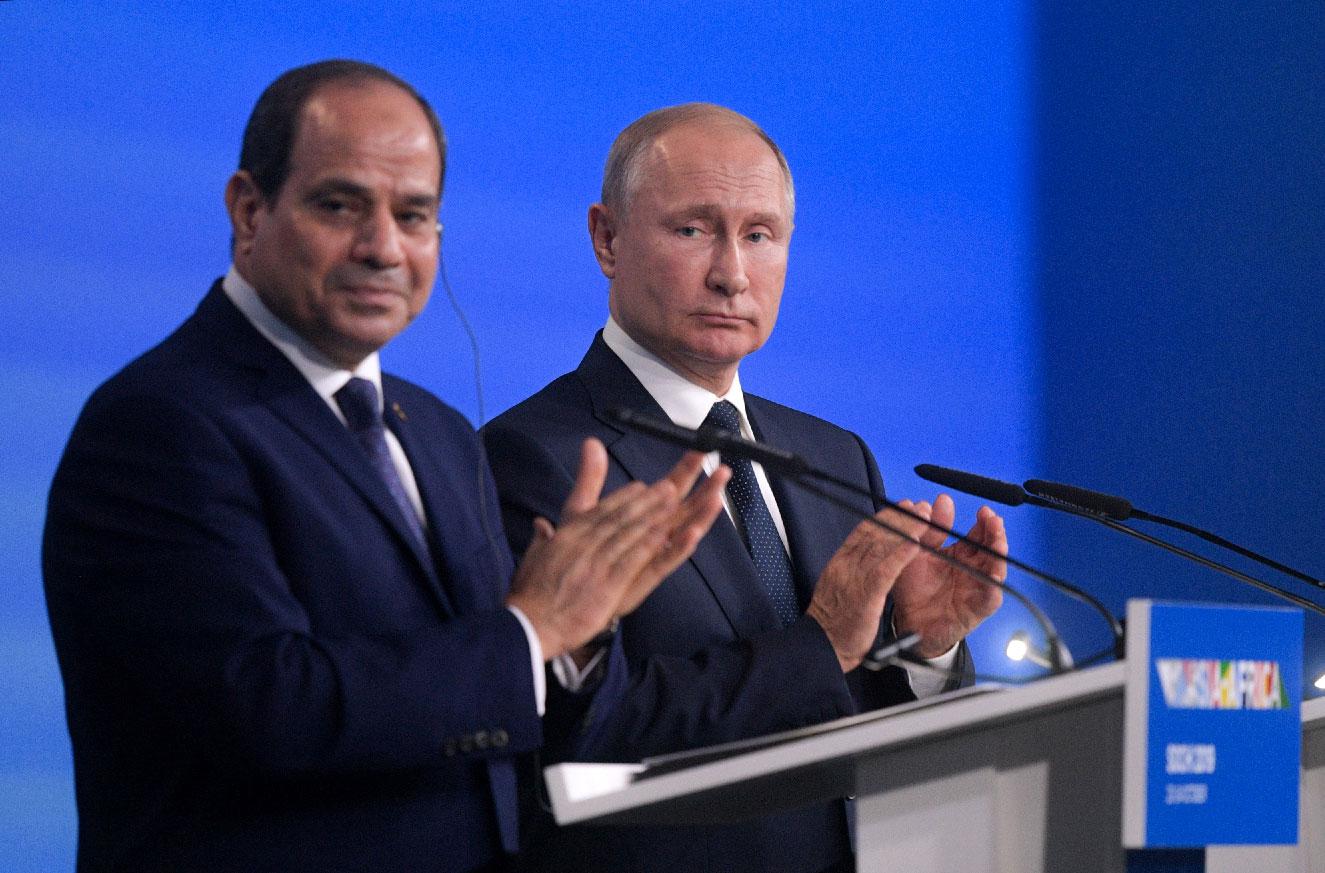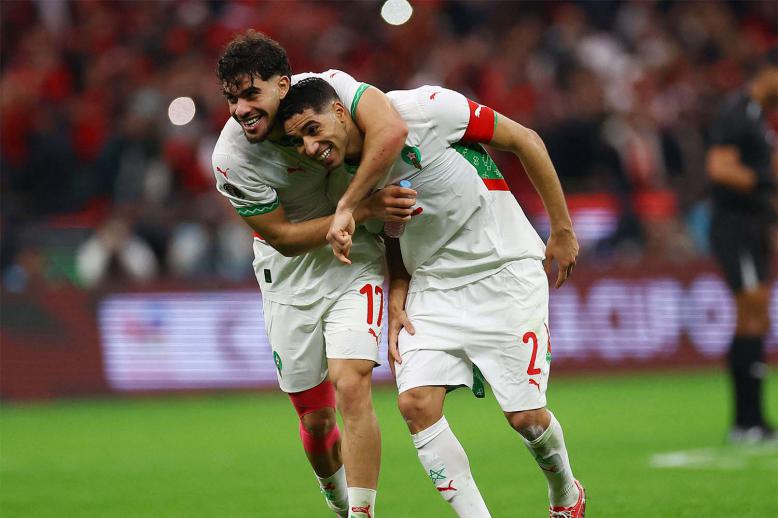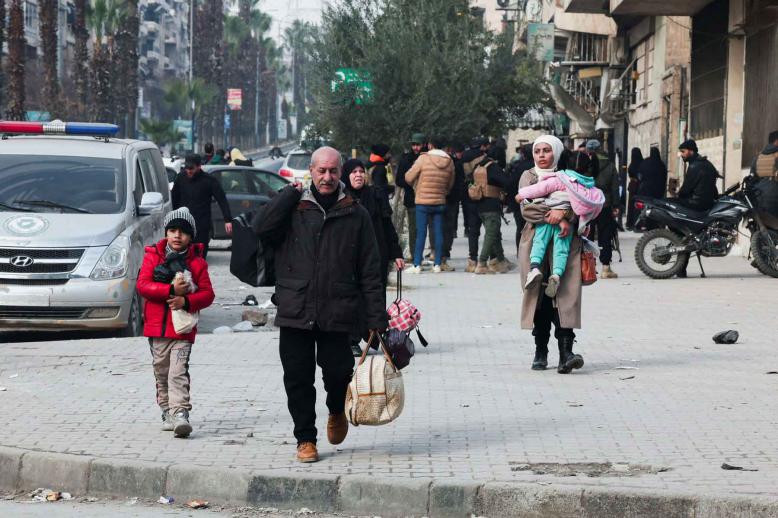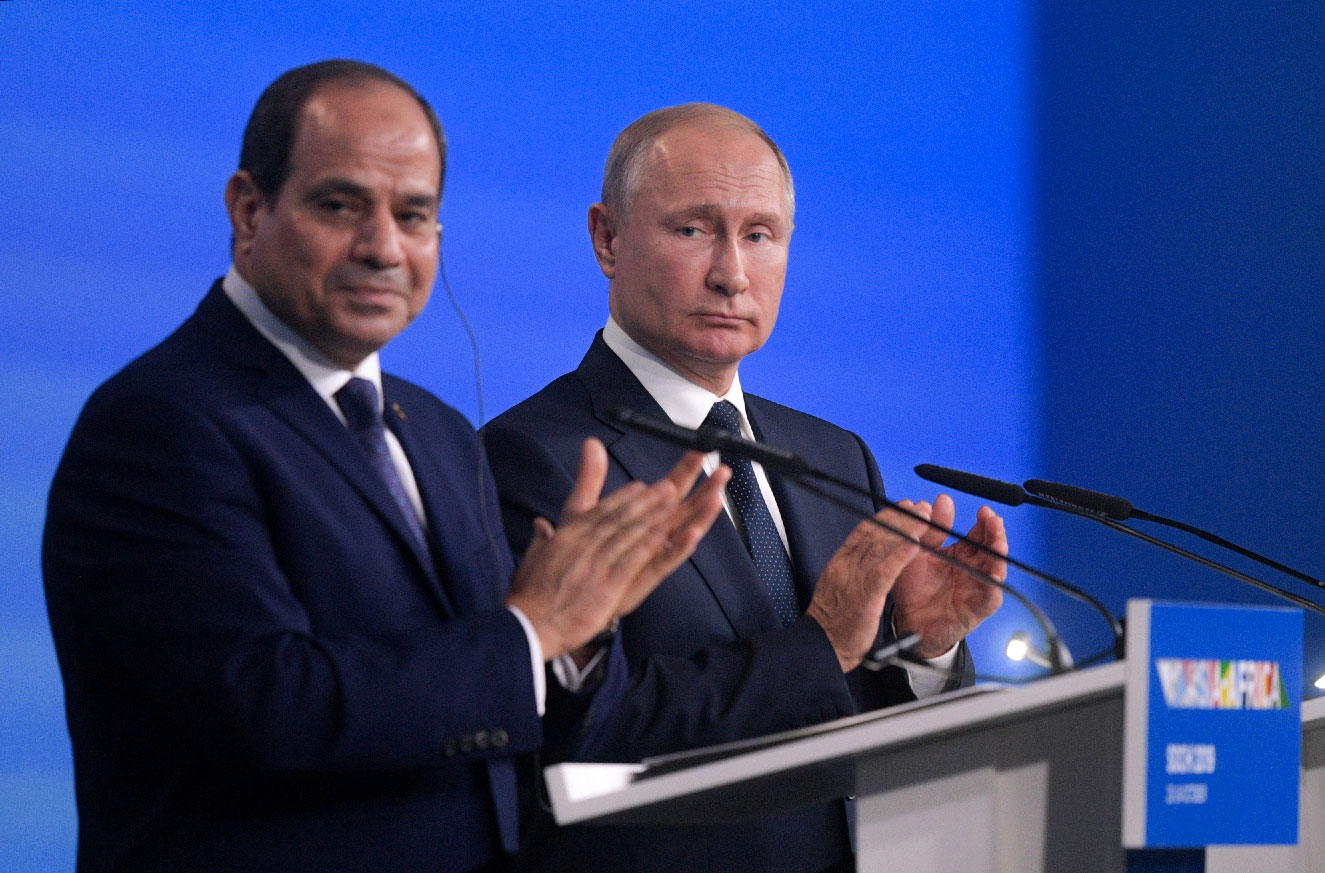Putin leads charm offensive at first Russia-Africa summit
CAIRO - Russian President Vladimir Putin used the first Russia-Africa summit to expand Moscow’s footprint in Africa, a continent awash with economic opportunities.
Putin, pointing out that Russian trade with Africa amounted to $20 billion in 2018, said: "We need to double this volume of trade in the coming four or five years."
The October 23-24 summit in the Russian resort of Sochi welcomed representatives from all 54 African countries, including 43 heads of government. There are plans for similar meetings to take place every three years as Russia seeks to strengthen relations in Africa.
Russia, economists said, strives to find new partners and markets after years of crippling Western sanctions.
"Africa is a huge market that is becoming at the centre of attention for major international players," said Egyptian economist Ali al-Edrissi. "It is thirsty for investments and economic support, things that Russia can offer."
Russia will be vying for space with other international players expanding their presence in Africa. China, France and India enjoy great leverage in Africa because of huge economic dealings in the continent.
China had a trade volume of $200 billion with Africa in 2018, including more than $100 billion in exports. Chinese investments in Africa cover critical sectors, including infrastructure, mining, oil and gas and industry. Chinese workers and engineers are present in almost every ongoing infrastructure project on the continent.
Russia does have an advantage in its historical relations with African countries. Many African leaders who spoke at the summit mentioned the support the former Soviet Union offered liberation movements in their countries.
That, analysts said, can help the Russians strongly compete for the hearts of the Africans, especially since Russia was never a colonial power in Africa.
Putin tried to increase his country's allure to the leaders by writing off $20 billion in debts owed by African countries. This, he said, would reduce the economic burden on countries that owe money to Moscow.
Russia is expected to focus on areas in which it has an edge, including mining, oil and gas, nuclear energy, the diamond industry and arms. Putin said Russia had signed agreements during the summit to the value of $12.5 billion.
He also had African leaders queuing up for individual meetings with him. He had 13 bilateral meetings with African heads of state, including with Egyptian President Abdel Fattah al-Sisi, who was co-chairman, along with Putin, of the summit.
With a population of 1.2 billion, a huge work force and an economy that is expected to be valued at $9 trillion by 2050, Africa is a great opportunity for international powers.
"Nonetheless, Russia has more acceptance in the continent because it does not attach any political conditions to the support it offers other countries," said African affairs specialist Ramadan Qurani.
Putin alluded to that point by highlighting the importance of finding African solutions to African problems. That acceptance is apparently inseparable from the interest Russia is demonstrating in African political and security problems.
Political and military conflicts and terrorism are tearing some African countries apart and some of those countries view Russia as a saviour at a time of withdrawal by other major powers.
Moscow proposed brokering a settlement of a dispute between Egypt and Ethiopia over a dam built by Addis Ababa on the Nile that will threaten Egypt's water and food security.
Putin lashed out at foreign interference in Libya and said Russia would work to boost security in Africa in cooperation with African countries.
He expressed concern at the growing threat of terrorism, especially in the Sahel and Sahara region and in the countries surrounding Lake Chad. Russia, he said, would cooperate more with African countries in the fight against terrorism.
Hassan Abdel Zaher is a Cairo-based contributor to The Arab Weekly, where this article was originally published.







